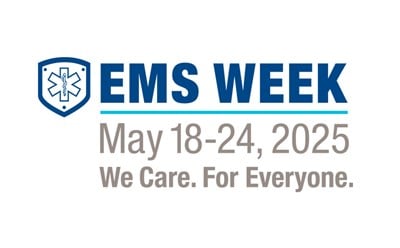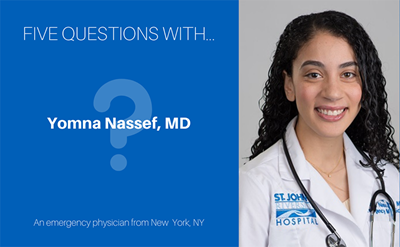WASHINGTON, D.C.—The American College of Emergency Physicians (ACEP) is pleased to announce that St. Joseph’s University Medical Center Emergency Department in Paterson, New Jersey, is the first facility in the nation to earn the new ACEP Pain and Addiction Care in the Emergency Department (PACED) accreditation.
“Emergency physician-led care teams are on the frontlines in the fight against opioid addiction and continue to be trusted partners in pain management,” said William Jaquis, MD, FACEP, president of ACEP. “The PACED program recognizes these leaders in health care and should give patients and their families even more confidence that the emergency care they receive meets the highest standards, reduces complications and improves the chances for a healthier life.”
ACEP’s PACED program is the first of its kind to recognize emergency departments that specialize in safe and effective pain and addiction treatment while minimizing the use of opioids or prioritizing alternatives to opioids. PACED-accredited facilities will accelerate the implementation of best practices nationwide and collaborate to help ensure that emergency physicians have the resources, protocol, and training necessary to provide the highest quality pain and addiction management.
"Although we have made important strides in emergency department pain and addiction care, the opioid crisis continues to ravage our communities. PACED accreditation offers a structure for front line staff and administrators to work together to ensure the safest evidence-based care is available for their entire community,” said Alexis M. LaPietra, DO, FACEP, Chief of Pain Management/Addiction Medicine at St. Joseph’s University Medical Center.
It is fitting that the first accreditation goes to the facility where the landmark Alternatives to Opioids (ALTO) program began in 2016.
“St. Joseph’s is incredibly proud to be the first facility accredited by the ACEP PACED program,” said Mark Rosenberg, DO, FACEP, Chair of Emergency Medicine for St. Joseph’s Health and president-elect of ACEP. “Emergency physicians are at the center of many initiatives that save lives by focusing on opioid alternatives and making sure that opportunities for early or urgent interventions are not missed. PACED-accredited emergency departments will advance best-in-class approaches to pain and addiction and lead the nation forward in the fight against the opioid epidemic, improving care and reducing harm for patients who struggle with opioid use disorders.”
Three levels of accreditation with increasing requirements are available. Hospitals can start at the level most appropriate for their current resources and strive to reach a higher level over time. More information is available at www.acep.org/PACED.
 American College of Emergency Physicians
American College of Emergency Physicians







